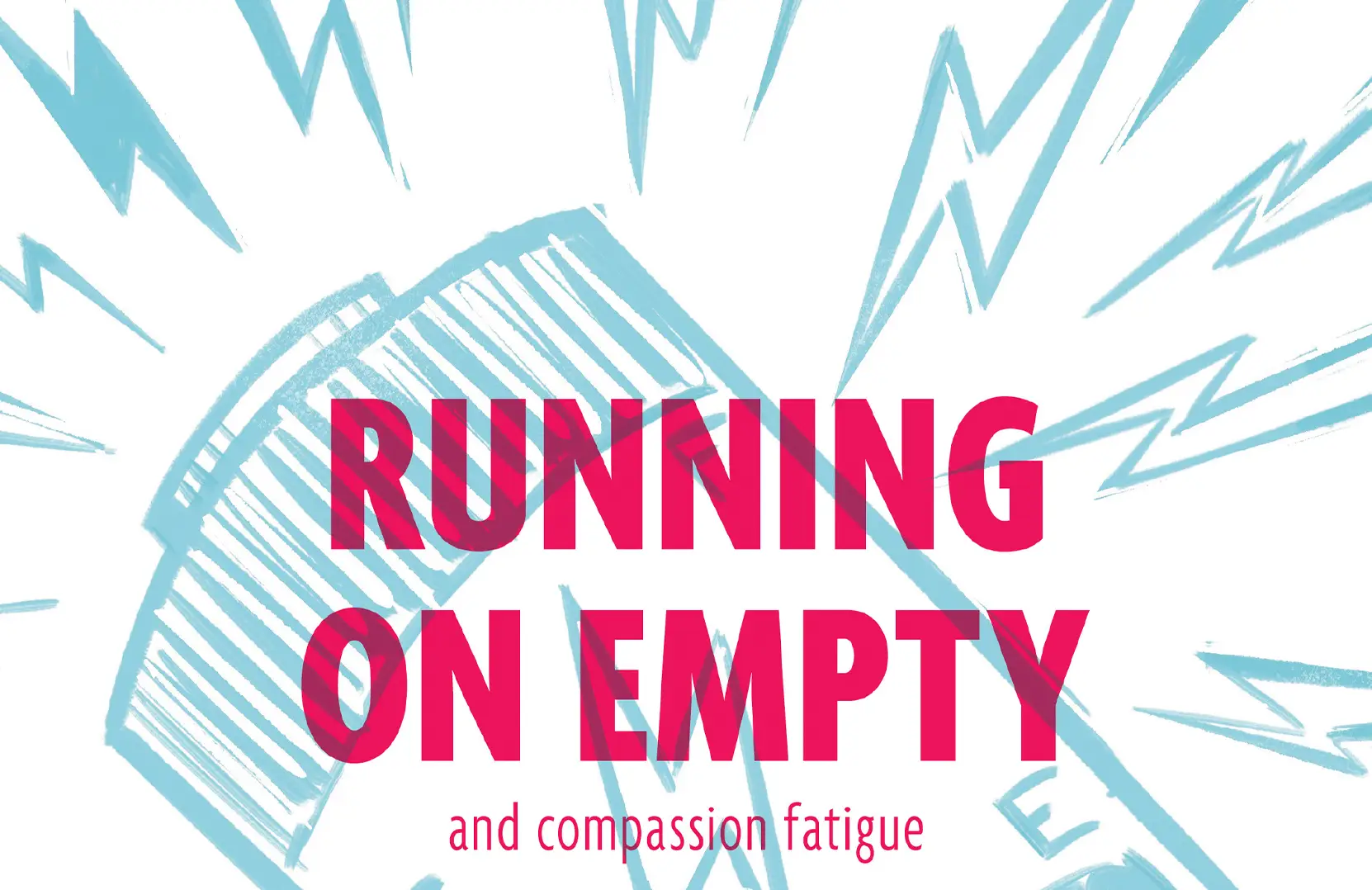When the world’s bad news floods our screens and minds
If you turn on the news for just two minutes, you’ll hear four news stories that’ll turn your day sour.
With new developments about the war between Russia and Ukraine, the war between Israel and Palestine, the worsening condition of climate change, and countless other stories that didn’t make it into the news cycle, we’re news consumers who are constantly fed bad news.
Sometimes, I wonder if the journalism major I chose is right for me because sometimes I can’t stand watching or listening to a news broadcast for more than five minutes. It leaves me feeling depleted.
What a gloom and doom start to this story, hey? Don’t worry! There’s light at the end of this tunnel.
Negative headlines can really mess with our heads — especially for the self-proclaimed empaths out there. It’s bad enough that issues in the news personally affect us, our friends, and our family members, but it’s also incredibly disheartening to feel like there is very little we, as individuals, can do to help. The overwhelming feeling of hopelessness can lead to burnout.
Craig Gnauck, a counsellor with MacEwan’s Wellness and Psychological Services, says students may experience compassion fatigue due to a full plate of responsibilities on top of external pressure to care for others.
“Unfortunately, with being a student, life does not suspend itself on the outside,” he says. “Life is not put on hold. Things happen to family members, partners, and close friends.”
Gnauck expresses that on top of assignments, exams, and field placements, students are expected to show emotional support to loved ones who need it. This is where compassion fatigue can start to rear its head.
“As it pertains to caregiving and compassion fatigue, people can kind of go through phases,” Gnauck explains. “The initial phase is engagement; they’re actively supporting someone else. Then, caregivers may feel annoyance, restlessness, and agitation. That can drift into anger and resentment.”
It’s critical to check in with ourselves to ensure that we’re not slipping into a state of emotional numbness as a result of burnout. Although recovery is possible, Gnauck says it is challenging to recover once reaching the point of total emotional exhaustion.
“Understandably, people are concerned about the shape of the world, what’s to come, and what will be left over for subsequent generations.”
Craig Gnauck, counsellor at the Psychological and Wellness Centre
It is crucial to note that compassion fatigue differs from what psychologists call moral injury.The Canadian Medical Association defines compassion fatigue as “the cost of caring for others or their emotional pain resulting from the desire to help relieve the suffering of others.” It’s like trying to put the oxygen mask on the passenger next to you before putting yours on and running out of breath in the process.
On the other hand, we experience moral injury when we watch the news and feel defeated and helpless because we can’t wrap our heads around the twisted events unfolding before our eyes.
“Compassion fatigue steps into that caregiving role,” Gnauck explains. “Moral injury puts people in a place of trying to reconcile their own moral code of what is going on, especially where people are put in positions where they act contrary to their morals and values.”
The American National Care Centre for PTSD describes moral injury as “the distressing, psychological, behavioral, social, and sometimes spiritual aftermath of such events.” As Gnauck mentioned, it’s most likely to occur after experiencing or witnessing events that oppose your morals.
“Understandably, people are concerned about the shape of the world, what’s to come, and what will be left over for subsequent generations,” says Gnauck.
This might explain why we feel so disturbed after consuming just a few minutes’s worth of any news channel. In journalism, there’s the morbid saying, “if it bleeds, it leads,” which is why big, traumatizing news stories are placed at the top of the news cycle and reported on more frequently than human interest or fluff stories.
Gnauck offers suggestions for relief from compassion fatigue and moral injury. He says to assess how you take care of yourself and how often you do it. “That’s the stuff that will bring and rejuvenate energy, perspective, hope, and purpose advancement in one’s life,” he says. “Heavy-duty stress and fatigue will paralyze folks. So, self-care can never be underestimated.”
Taking care of yourself may feel selfish when you have others to tend to or when you think of the poor condition of our world. But, there is power and importance in filling your cup.
I want what I do for others to be an overflow of what I already do for myself. Personally, this looks like waking up earlier in the morning to tend to my needs so I feel well-equipped enough at school and my workplace to pour my time and resources into my colleagues. Self-care goes beyond facemasks and warm baths. It looks different for every unique individual.
“Some people dive into the arts — playing instruments, painting, or sketching. Maybe it is physical activity. Some people just need to create a bubble to go into and be alone to replenish that lost energy,” says Gnauck.
Gnauck advocates for volunteering as an active form of self-care. “This is a method of investing,” he says. “They can participate in the change, and it takes them out of the paralysis because they are doing something productive and meaningful according to their values and moral code.”
Volunteering can help you regain individual control over the state of the world. It’s perfect for those who constantly feel like they aren’t doing enough for the world. The good news is that you can start in your own community, and it’ll make all the difference.
Coping with compassion fatigue and moral injury all comes down to one thought: “I am just one person.”
Give yourself the reassurance that you don’t have to go full Superman to feel like you’re doing your part in improving the world. Make room for self-care; you need it more than you know. Establish healthy boundaries with your loved ones to whom you provide support. Don’t let yourself run on empty. Lastly, stay informed with the happenings of the world if you wish, but know that it’s not your responsibility to fix it all; you can step away whenever you need a break.
If you need additional support here are some resources:
SAMU Peer Support | peersupport@samu.ca
The CMHA Distress Line | 780-482-4357
MacEwan Psychological and Wellness Centre | 780-497-5063 or wps@macewan.ca
Student of Concern | 780-497-4202 or studentofconcern@macewan.ca
Photo from Canva





0 Comments